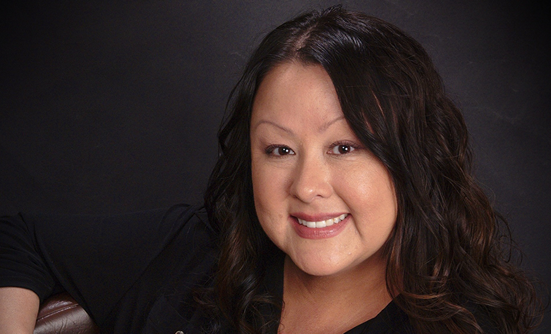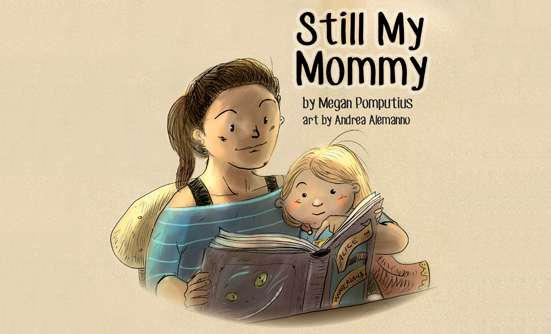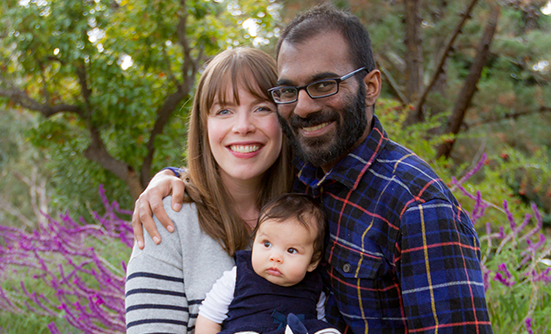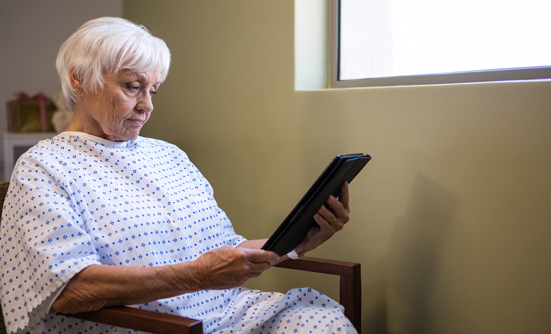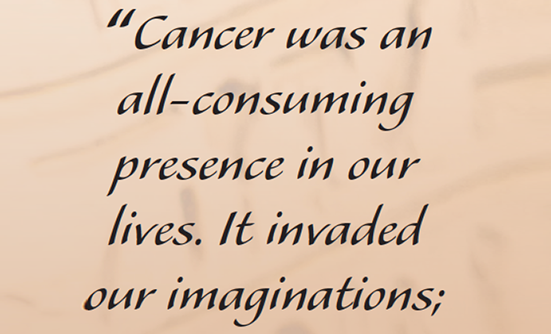There are few journeys in life more difficult than the journey through cancer. Imagine going on a trip without knowing the destination or method of transportation, with no map to guide you, and with no planned arrival time. Now imagine you are leaving tomorrow, and there is no time to pack.
It is little wonder that patients with cancer often feel overwhelmed and shut down and are unable to participate in critical decisions about their care. Our logical minds stop working just when we need to think with absolute clarity about our next steps.
Lori's Journey
My wife, Lori Lindstrom Leifer, MD, learned this lesson firsthand when she was diagnosed with breast cancer. Despite being a practicing radiation oncologist with more than 25 years of experience in the field, she, too, was overwhelmed by the magnitude of the journey that loomed in front of her.
Lori made it safely through her journey, although the specter of returning cancer is a shadow that forever accompanies her. Even so, Lori actively embraces every day, seeing it as an opportunity to help patients with cancer and their families navigate their personal cancer journeys. So, when I asked Lori if she would help with a book I was writing for patients with cancer, she was eager to participate.
A Practical, Empathetic Road Map
After You Hear It’s Cancer: A Guide to Navigating the Difficult Journey Ahead provides an empathic road map that begins at the moment of diagnosis and walks patients and their families through every step of the cancer journey.
The book builds on my years of research of the psychological, social, and spiritual needs of patients with cancer, combined with Lori’s rich clinical knowledge. The result is an information-laden but empathic book that is designed to empower patients to make the right decisions at the right time relative to their treatment.
Treatment Planning
The book is divided into 3 sections-diagnosis and treatment plan, active treatment, and after the initial treatment; this division enables patients to focus on the information that will be most relevant to them. The first section begins with the moment one hears the word “cancer.” It encourages patients to slow down and take the time required to select the right care team, understand their diagnosis, and collaborate in the treatment planning process.
Lori and I believe that informed consent requires that a patient be knowledgeable about his or her disease, treatment options, and goals. So, we strongly encourage readers to ask the following questions of their care team.
Begin with Your Primary Care Physician
- Why are you sending me to this type of specialist to make the diagnosis?
- What made you choose this specific specialist over others?
- If I wanted a second opinion from a physician at another hospital, who would you recommend?
Questions for Your Specialist
- What type and stage of cancer do I have?
- What is my outlook for the future (prognosis)?
- What treatment(s) do you suggest, and why?
- What is the goal of treatment-to cure or to control my symptoms?
- Is the treatment that is being recommended driven by recognized guidelines or other protocols?
- What are the risks or side effects of the treatment?
- Are there other treatment options available for my cancer based on its staging and grade, as well as my age and personal health status?
- How will we know if my treatment is successful?
- If the treatment is not successful, what treatment options will follow?
- How many times have you performed the recommended procedure?
Active Treament
Your treatment should proceed only after you have received satisfactory answers to all your questions. You can then move to the second section of the book, which discusses important issues associated with active treatment, including managing the emotional roller coaster of cancer, anticipating and managing side effects, nutrition and exercise, and the cost of cancer care.
When Treatment Fails
The final section addresses how to proceed when initial treatment fails. Again, asking your care team the right questions is critically important:
- Why may this treatment be effective when others have failed?
- Where can I learn more about this treatment before agreeing to it?
- Are there clinical trials for my disease and the stage of my disease?
- What would be required of me for participation?
- Will my insurance cover the costs associated with the trial?
- What options would remain if the treatment in the trial proves ineffective?
Fotering Hope
Beyond empowering patients with information, our overarching goal is to foster hope.
So we leave you on your journey with a quote from Sonja Sherry Hickey’s 1989 article “Enabling Hope,” in Cancer Nursing: “Overall, hope is probably the single most important element in the lives of patients and family members struggling with a diagnosis of cancer.”
The journey may be arduous, but finding hope, regardless of one’s outcome, brings a profound sense of meaning and closure to your experience with cancer.








